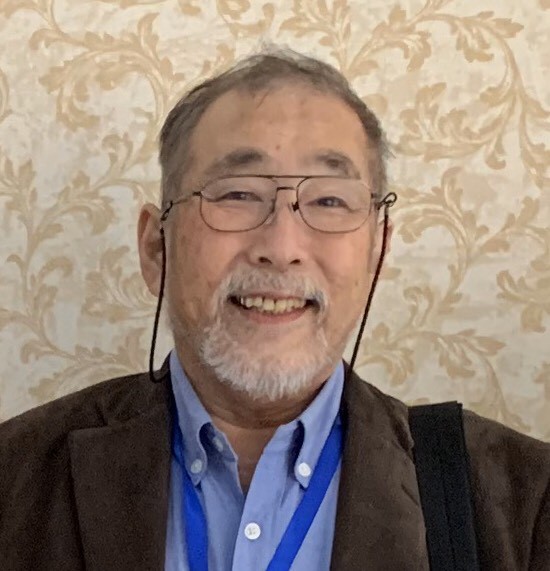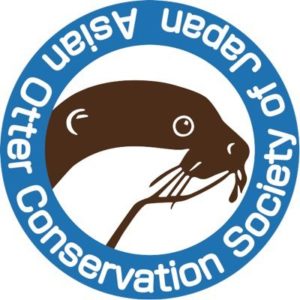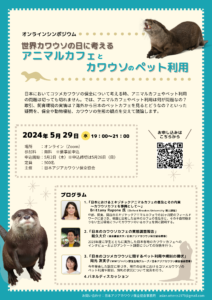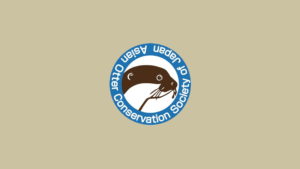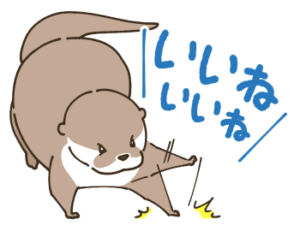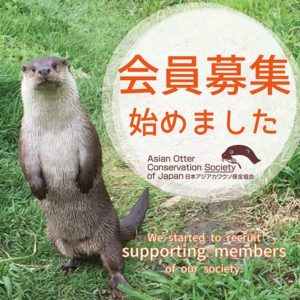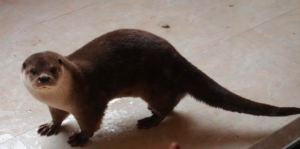Dr. Motokazu Ando
27th March 1950 – 24th March 2020
Dr. Ando was born in Osaka on March 27, 1950, and passed away from pancreatic cancer on March 24, 2020 at the age of 69.
After graduating from the Department of Science, College of Liberal Arts, International Christian University in 1973, he joined Hani Productions and was involved in filming wildlife movies in Africa, etc. After that, he became a temporary staffer at the Zoology laboratory of Professor Hideo Obara in the Women’s Nutrition University. His otter life might be said to have started with joining the survey of Japanese otters by Yoshiharu Imaizumi in Kochi Prefecture from 1972 to 1976. In 1978, he entered the Graduate School of Agriculture, Kyushu University, to study wildlife. In 1982, he became a lecturer at the Department of Biology at Gyeongnam University in South Korea while he was a graduate student, and started otter research in South Korea, which until then had hardly been studied. After obtaining his Ph.D. in 1985 for research on arboreal and gliding adaptation of the giant flying squirrel (Petaurista leucogenys), he started to work as an officer of Shiga Prefecture. In 1993 he joined the staff of the International Lake Environment Committee Secretariat for the conservation of wetlands and later was a consultant for global wetland conservation. In 2001, he got a job at Tokyo University of Agriculture, where he studied the ecology of many mammals including otters, with many students. He retired in 2015, moved to Yamazaki Gakuen University, retired again in 2018, and became an emeritus professor at Yamazaki Animal Nursing University.
In 1989, I was asked by the government to study the present situation of otters in Kochi Prefecture, but I had never done an otter survey. I asked Dr. Ando to teach me how he studies otters in Korea. Dr. Ando and I established the Otter Research Group, and had carried out much research and awareness-raising activities for otters in various parts of Asia, such as the Korea-Japan Otter Symposium in Japan and South Korea in 1995, IUCN OSG Asia Group meeting in Thailand in 1996, Workshop on surveying and monitoring otter populations in Thailand in 1997, Workshop on conservation and public awareness of otters in Taiwan in 1999, Workshop on otter conservation in Toa Daeng Peat Swamp Forest in 2000, the Pan-Asian otter workshop in India in 2002, andWorkshop on Enhancement of Knowledge and conservation otters in U Minh Thuong National Park in Vietnam in 2002. We published The Wetlands Ambassador-Education and Public Awareness methodologies for otter conservation in English in 2001 and in Korean in 2002. During this time, he also joined the OSG..
For wetland conservation, he has been the Chairperson of Japan at Ramsar Center from 2006 to 2018, and was also active as Vice Chairman of the Japan Wetland Society from 2013 to 2018. He has been active as a board member of the Wildlife Conservation Research Group since 2006, has taken the leadership as a chairperson from 2013 until his death, and also as a member of this group delegation for the CITES meeting.
Dr. Sung-yong Han, who has conducted otter surveys in South Korea with him, founded the Korean otter research center in 2013. His major achievement about otters was the publication of the Japanese Otter: Lesson from its Extinction in 2008.
What I was always impressed with was that Dr. Ando persisted to publish graduation thesis, records of attending an academic conference and so on. In addition, Dr. Ando was very energetic. He attended the Asia Wetland symposium in November 2017 just after he had known about his cancer. He also attended the IOC in China in 2019, which was the last one for him. He continued many lectures and visited to foreign countries without stopping research and awareness raising activities. I met him at the meeting of otters in Tsushima in February 2020, and at that time, he said he had prepared his funeral and selected his coffin by himself. He continued to write manuscripts for otters in March. He never stopped working until he died. I promised to visit his house in March to assemble the otter materials together, but I could not meet with him.
The students who were taught by Dr Ando and those who were influenced by his otter book are growing. I still don’t feel that Ando-san, who guided me to otter research and international activities, died. The activities of the otter research group, which was created by the two of us, have been passed on to the Japan Asian Otters Conservation Association, which is supported by young people, and the seeds sown by Dr Ando are gradually growing..
Hiroshi Sasaki (2020). Obituaries. IUCN/SSC Otter Specialist Group Bulletin 37(2):i
